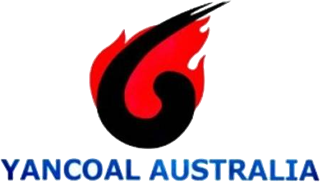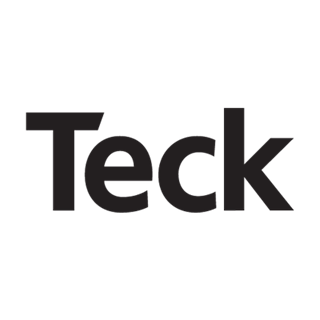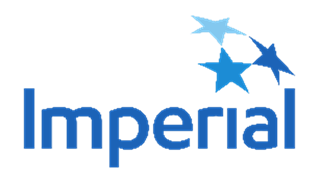The Australian mining industry will need to work with partners from all corners of the mining equipment, technology and services (METS) industry if it hopes for a streamlined energy transition.
While original equipment manufacturers (OEMs) will be critical in providing the decarbonised machinery, the technology sector is going to be equally – if not more – important in enabling the integration of this equipment.
VERIDAPT has been a forerunner in digital energy management for over 20 years and has a critical role to play in providing the platform, hardware and expertise to support a diversified energy mix.
VERIDAPT’s AdaptFMS is recognised as one of the most comprehensive fuel-management solutions for industrial industries. The company’s AdaptMAC technology serves as the primary data-acquisition, authorisation and control device, while the AdaptIQ software application reports on fuel transactions and emissions across the supply chain.
With plenty of scope for further advancement, these systems are inherently adaptable and scalable to manage the complex energy profiles expected as part of the green transition.
As VERIDAPT readies its customers for what’s ahead, the company often asks the question, “How are you transitioning to clean energy?”
“It’s obviously not going to be a flick of the switch. Instead, it will be a transition over time,” VERIDAPT co-founder and chief technology officer Sean Birrell told Australian Mining.
“Customers are going to end up with mixed fleets of EVs (electric vehicles), traditional ICE (internal combustion engine) equipment, and potentially hydrogen and other technologies as well.
“The requirements to report on your costs and energy use, and the need to manage your supply chain, those things are going to remain, but it's going to be in a more complex environment. Fleets that previously relied on one energy source – diesel – will now have multiple sources of energy.”
This is where VERIDAPT comes to the fore.
“Some customers are already integrating EVs into their fleet,” Birrell said. “We’re working with these customers to visualise their mixed-energy footprint and understand the associated reporting requirements, and are starting to onboard other energy sources into the one platform.”
As VERIDAPT’s energy-management offerings have evolved over the years, the company has already overcome many of the technical hurdles that can come with proving a nascent digital solution. This provides a strong foundation for VERIDAPT to embrace future energy opportunities.
“By solving the monitoring challenges related to the diesel supply chain, we’ve already solved many of the technical problems you might face in monitoring the energy footprint of an EV fleet,” Birrell said.
“In mining, that is rugged, robust hardware that can survive in the field, is fit for purpose, and has the right communications options. Our IoT (Internet of Things) platform has been designed for that environment very specifically, so that gives us a strong base to build on.
“We are advancing our technology so it can interface directly with EVs and associated infrastructure – there are already open standards that support this communication. We also have the appropriate sensing technology that can be installed to monitor electrical loads from an EV or mixed fleet.”
As VERIDAPT evolves its energy-management platform, the company will move with the industry as more and more reporting guidelines are introduced for decarbonised fleets.
“What we’re already seeing is demand for more accurate, real-time data around emissions, whether that be for mandated external reporting or internal reporting against company objectives and goals,” Birrell said.
“Emissions are also more than just CO2, with the need to report on other gases such as nitrous oxide and sulfur oxide. There’s also increasing focus on other emissions such as particulate matter.
“In a clean-energy future, clients will need to aggregate their emissions data, report on it, include energy data from their EV fleet, and combine that in a way that shows they’re progressing towards targets and are meeting their reporting obligations.
“We hope to support our customers on this journey.”
With so many moving parts to understand and enact as the Australian mining industry decarbonises, any way VERIDAPT can simplify the processes involved with transitioning to green technologies will be valuable for its mining customers.
“What we want to do is reduce complexity, simplify data acquisition and reporting, and provide a single source of truth across entire fleets and energy consumption,” Birrell said.
“Our platform will work for customers throughout the energy transition, which is equally advantageous for new customers as it is for our strong customer base that is already invested in our fuel management platform.
“Existing customers can now look at this as investment in fleet energy management infrastructure, and we will make sure that scales and grows in the way they need it to for a mixed-energy future.”
Adopting decarbonised technologies will not only be a necessity for the Australian mining industry but also an opportunity to realise greater operational efficiencies and limit costs.
And companies such as VERIDAPT have a key role to play in setting the scene for the mixed-fleet landscape, providing the platform and expertise to monitor, store and scrutinise the data.
“It doesn’t matter what the source is, energy is going to remain a significant cost input,” Birrell said. “It will tell miners a lot about how they run their business, and sourcing and procuring energy will continue to be a critical operating concern.
“Whatever the energy mix is, we want to help our customers with those challenges and provide the platform and services that ensure they have the energy they need for their fleets.
“We want to ensure our customers can accurately report on their energy footprint and meet their reporting obligations and improve their operations by understanding their usage patterns and efficiency.”
Read the full Australian
Mining issue here
Share this article






















